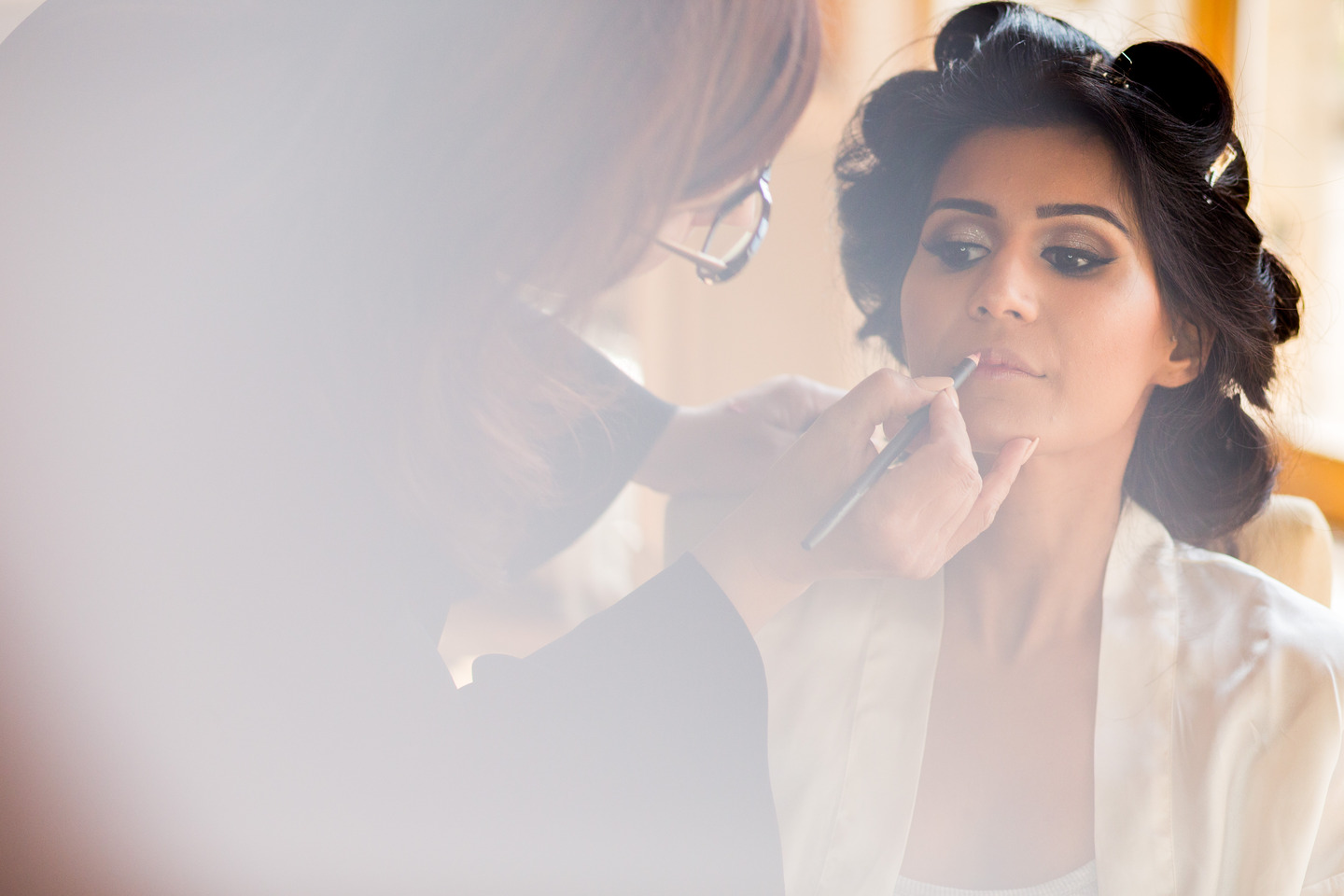For generations, the idea of marriage has carried a sense of inevitability, a milestone to be reached by a certain age, a box to be ticked on the journey toward being seen as “complete.” It has long been framed as a rite of passage into adulthood, wrapped in rituals, expectations, and the quiet insistence that love, real love, must arrive by a culturally approved deadline. But something is shifting.
Across cities and small towns, among dreamers and doers, a quiet resistance is blooming. It isn’t loud or defiant. It isn’t always even visible. It’s in the pause when someone chooses not to rush. In the decision to wait until love feels whole. In the willingness to build a life that’s fulfilling before it is shared. Today, marriage is no longer a finish line to be crossed in one’s twenties. It’s a deeply personal chapter that unfolds, if and when it’s right.
Khush explores that shift, not to pit one path against another, but to hold space for the many ways people are choosing to write their own timelines. Whether it happens early, later, or not at all, love, at its best, is never late.
A new kind of timeline
The author’s family member Ria, who turned thirty this April, represents a growing number of individuals who are consciously choosing to delay marriage, not out of fear, but out of intention. A driven and introspective professional, she has consistently prioritised personal growth and autonomy. At family functions, she’s often met with variations of the same question: “So, is there someone special?” Her response is measured, never defensive, but quietly assured.
“I’m not waiting,” she often says, “I’m living. Marriage is beautiful, but only when you’re truly ready for it, not when you’re told it’s time.” For Ria, the question isn’t whether she wants to be married someday, but whether she wants to rush into something so permanent before she’s built a life that feels complete on its own. It’s not resistance to tradition, it’s respect for the significance of commitment.
Her outlook echoes the experience of many women today, including Nupur Sarvaiya, Features Editor at Khush, who shared, “When growing up, I felt that every age milestone was a marker to reach a certain stage professionally and personally. Marriage was on top of that list.” But as she wisely notes, “the truth is there’s no such thing as the right time. What truly matters is the right person… the wrong time can feel right with the one who’s meant for you.”
Redefining readiness
Then there is Gaurav Arora, a 39-year-old actor with a steady career in modelling, OTT, and movies. His parents, well-meaning and loving, have tried for years to match him with suitable partners, hoping he will eventually “settle down.” But Gaurav isn’t resisting for the sake of rebellion. Instead, he speaks from a place of grounded clarity.
“I fall in love all the time, with roles, with cities, with stories,” he shares. “My life is full of emotion, intensity, and growth. I don’t think marriage is the only place where that kind of romance lives.” For him, love and intimacy aren’t necessarily tied to legal contracts or ceremonial timelines. It’s a reminder that not everyone needs marriage to feel complete, and that fulfilment can come from creating, expressing, and building meaningful connections in unconventional ways.
The complexity of early marriage
Of course, not all stories about marriage and timing involve delay. Mira Rajput, who married actor Shahid Kapoor at the age of 21, has openly reflected on what it means to enter marriage at a time when many of her peers were still navigating early adulthood. While she now embraces her role as a mother and public figure, she admits that the early transition wasn’t always easy.
“It was quite isolating at first,” Mira shared in a podcast. “My friends were still in college. I was living in a new world.” Her words capture the duality of early marriage, it can be grounding, but also deeply disorienting when one is still growing into themselves. Mira’s honesty highlights that while marrying young can truly work out, it demands a level of emotional maturity and adaptability that not everyone is prepared for at 21.
Rewriting the norm
In the world of celebrity, where personal choices are public fodder, many well-known women have used their platforms to normalise non-linear love stories.
Trisha Krishnan, a prominent South Indian actress, has long faced questions about her single status at 42. Her response, characteristically unbothered, is refreshingly direct: “I don’t believe in marriage. If it happens, that’s fine. If it doesn’t, that’s fine too.” For Trisha, the value of life isn’t measured in marital status but in purpose, freedom, and self-possession. Her statement doesn’t reject marriage as an institution; it simply questions whether it should be a necessity.
Priyanka Chopra Jonas, who married musician Nick Jonas at 36, has reflected on the timing of her marriage with characteristic clarity. “From the age of 18 to say 35 is the only time when you will be working with that zest,” she said in an interview, referencing the period in which she built her global career. For Priyanka, marriage wasn’t about completing a life, it was about adding to one that was already rich, full, and deeply self-defined.
Similarly, Deepika Padukone and Katrina Kaif married well into their thirties, after years of career highs and personal evolution. Katrina, who tied the knot at 38, has often expressed her belief in divine timing. “What is meant for you will come to you,” she said. “You don’t have to chase it. Just be ready when it does.” Her perspective reflects a deep trust in life’s natural unfolding, one that replaces anxiety with acceptance.
Redefining family outside marriage
Kalki Koechlin’s story stands apart for its courage to defy not just timelines, but templates. After her marriage to filmmaker Anurag Kashyap ended in divorce, Kalki chose a new kind of family with her current partner, Guy Hershberg. The couple lives together and co-parents their daughter, Sappho, without being married.
“We took a conscious decision not to marry,” Kalki shared in an interview. “That doesn’t mean we aren’t committed. We’re just doing it our way.” Her life offers a powerful reminder that the meaning of partnership is constantly evolving, and that legitimacy isn’t confined to rings and rituals. For Kalki, love, stability, and freedom are not contradictory values. They coexist beautifully.
Why timing, and choice matters
The common thread through each of these narratives is not when someone married, or even whether they did, but why. When the decision to marry comes from self-awareness and agency, rather than cultural pressure or fear of falling behind, it becomes something empowering. Conversely, when it’s made out of obligation, it can lead to resentment, confusion, and missed opportunities for growth. More people today are choosing to wait, not because they are afraid of marriage, but because they respect it too much to rush into it. They are recognising that emotional readiness matters more than age, and that the freedom to write one’s own timeline is itself a kind of love story.
As Nupur Sarvaiya insightfully shares, “We spend so much time waiting for the ‘right time’ to settle down… but really, the right person matters more than any timeline.” In that spirit, many today are choosing to wait, not because they fear marriage, but because they respect it.
Statistically, the average age of marriage is rising across India and other parts of the world. The change isn’t always dramatic, but it is steady and significant. It signals a quiet cultural shift, one that values intention over tradition and depth over decorum. This shift is seen in every thirty-something choosing to build a life solo, every couple choosing to marry later, and every individual daring to question the belief that a wedding is the ultimate marker of a successful life.
A timeline worth celebrating
There is no universal script for when a life partnership should begin. No perfect age, no ideal timeline. What is unfolding today is not a rejection of marriage, but a reimagining of what it can mean. When chosen with clarity and care, it remains a profound act of commitment. But when deferred, delayed, or declined entirely, it can be just as powerful a reflection of self-awareness and inner peace.
The true celebration lies not in following the clock, but in listening to one’s own rhythm. To honour the seasons of life as they come, to choose love, not out of pressure, but out of presence. In doing so, the meaning of “settling down” quietly transforms. It is no longer about reaching a destination, but about arriving at yourself first, and then deciding whether and how to share that journey with someone else.
In a world that often urges haste, choosing your own pace is an act of courage. And there is deep, undeniable beauty in that.













